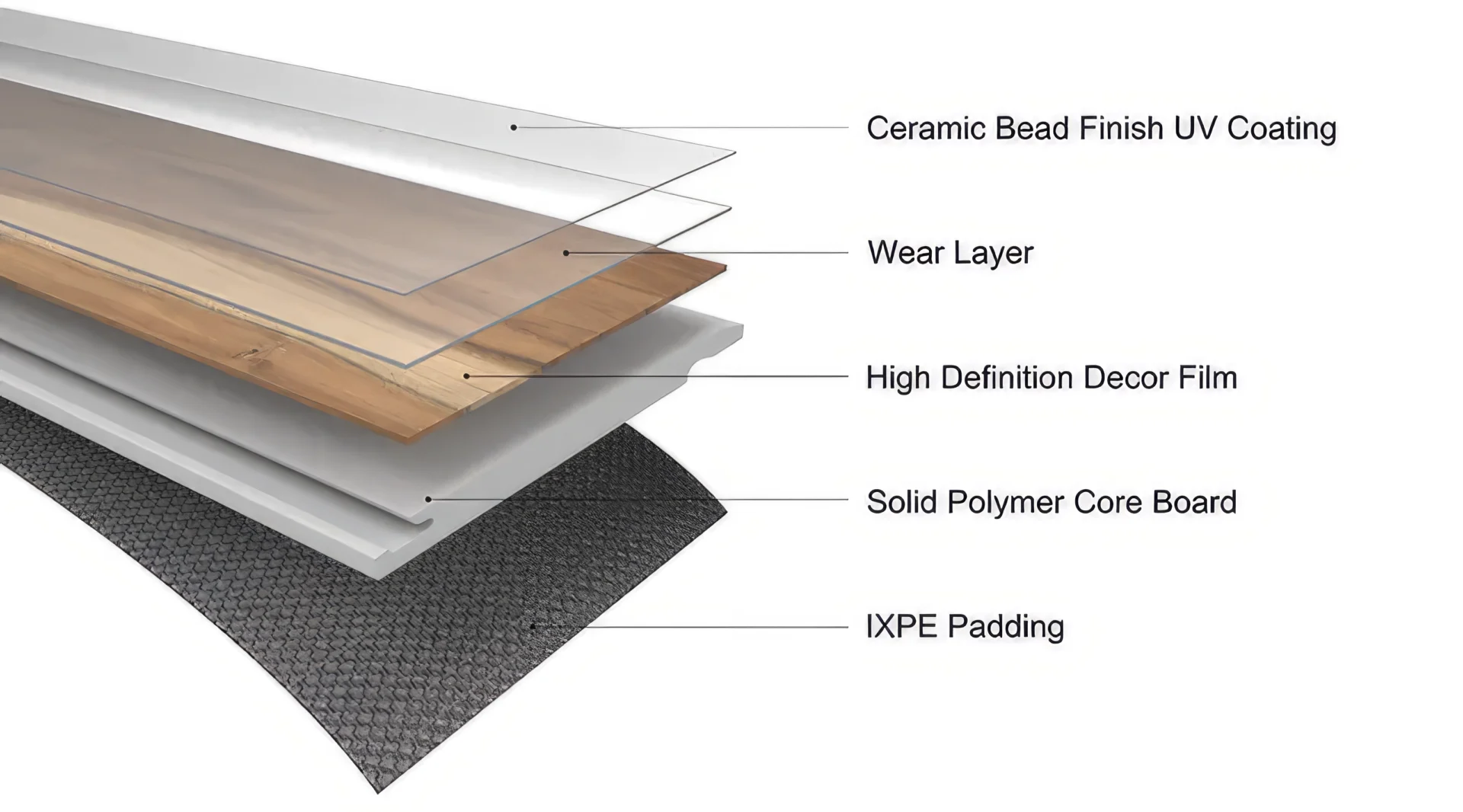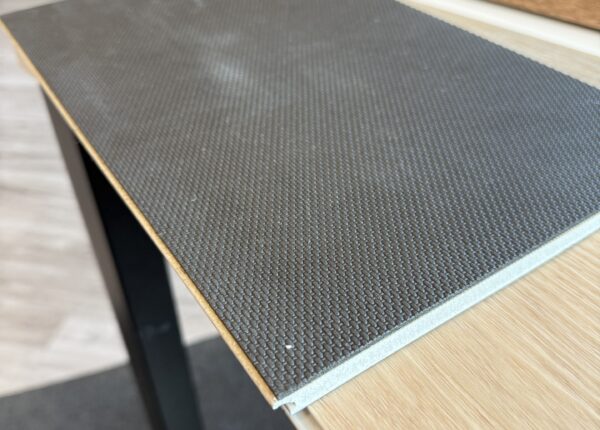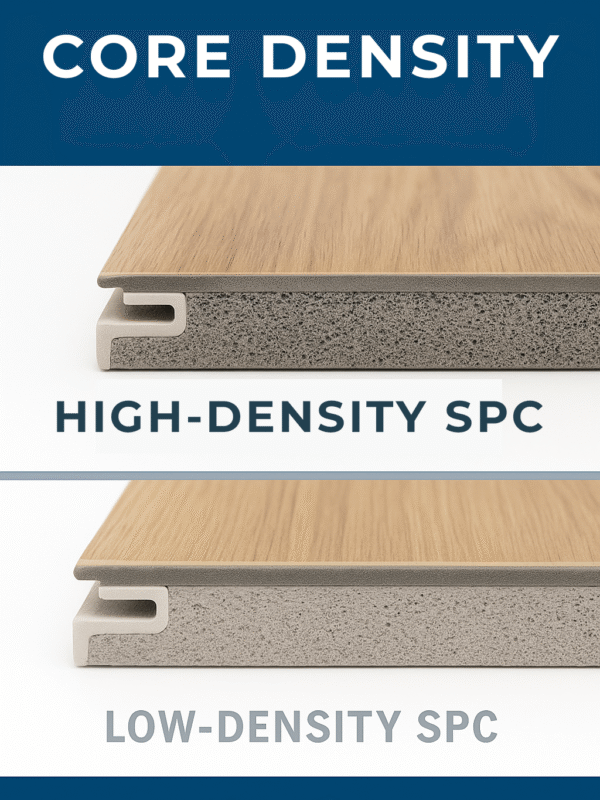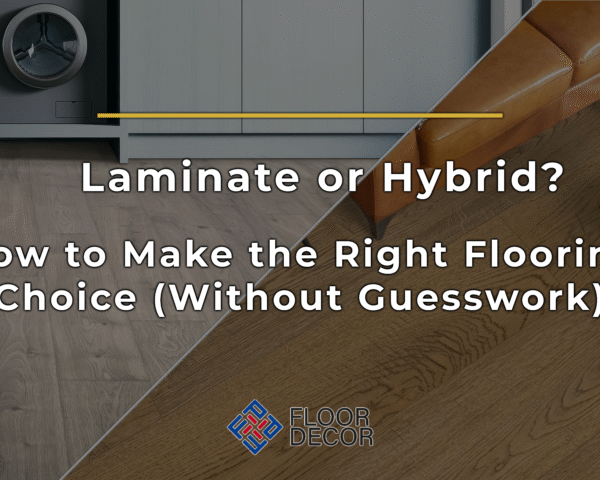Thinking About SPC Flooring? 5 Questions You Must Ask Before Buying SPC Flooring
SPC hybrid flooring has quickly become a favourite in New Zealand homes, thanks to its waterproof nature, durability, and sleek modern look.
🕒 10 min read

Thinking about upgrading your flooring? We get it. It’s exciting but also a little stressful. Flooring isn’t just a quick fix; it’s one of the biggest investments you’ll make in your home. The last thing you want is to choose something you’ll regret. SPC flooring, known for its durability, waterproof properties, and modern aesthetics, is growing incredibly popular across New Zealand. But here’s the truth not every SPC flooring product is worth your money.
Before you fall in love with that sleek look, protect your investment by asking these five critical questions. They could save you thousands and a whole lot of heartache down the line.
1. What's the Plank Thickness? And Does It Really Matter?
Absolutely, thickness matters a lot. Thicker planks (around 5mm or more exclusive underlay) mean better stability, increased durability, and less chance of those annoying gaps or flexing that thinner floor experience. Thicker planks also mean a stronger, thicker locking mechanism. Since SPC flooring naturally expands and contracts with climate changes, robust locking mechanisms help the planks withstand this movement without coming apart or creating gaps. A thicker plank doesn’t just feel solid. It protects your wallet by lasting significantly longer and standing up to everyday Kiwi life without hassle.
2. Does the Floor Have Genuine UV Protection and thicker wear layer?

The top surface of SPC flooring is your floor’s first line of defence, so pay attention to how it’s built. High-quality SPC planks typically feature a double UV coating on the surface. This is essentially two layers of a UV cured clear finish that make the floor more scratch resistant, stain resistant, and UV-stable (important in NZ’s sunny climate to prevent fading). Beneath the UV coating lies the wear layer a transparent, extremely durable layer that protects the printed design. The rule of thumb with wear layers is thicker is better. You’ll see wear layer thickness listed in millimetres or “mil” (1 mil = 0.001 inch). Aim for at least 0.5mm (which is about 20 mil) or more for the wear layer on SPC flooring. A 0.5mm wear layer is considered commercial grade and will hold up to heavy traffic and abrasion for years. By contrast, budget SPC products might have only a 0.3mm (12 mil) wear layer, which is okay for light residential use but not as long lasting. So ask the retailer: What is the wear layer thickness? Also confirm that there’s a double UV protective finish this extra topcoat is a sign of a premium product, adding extra resistance to scuffs and UV light so your floors’ colour stays vibrant over time.
3. Is the Backing Actually Mould-Proof and Waterproof?

One fantastic feature of many SPC floors is that they come with a built in underlay (backing layer) already attached to each plank. This backing adds cushioning, reduces noise, and crucially, acts as a moisture barrier. In New Zealand homes whether you’re on a concrete slab or wood subfloor moisture can seep up and cause problems like mould or mildew under the flooring. To combat this, make sure the SPC product you choose has a backing that is specifically described as waterproof, moisture proof, or anti microbial. The most common high-quality backing material is IXPE foam, a closed cell foam that doesn’t absorb water. IXPE and similar backings are 100% waterproof and impervious to mould, mildew, rot, and bacteria. In other words, they won’t harbour that nasty damp smell or fungus growth that can occur with inferior underlays. It’s a crucial factor you might overlook but it’s one that could save your home (and health) from costly damage.
4. How Durable is the Core Material?

The heart of SPC flooring lies in its stone based core. The denser and higher quality the core, the longer your flooring will survive everyday wear and tear. Inferior cores will dent, warp, and buckle over time, leaving you stuck replacing your floor much sooner than expected. Look for high density cores for genuine long term durability.
5. What Exactly Does the Warranty Cover?
It’s tempting to overlook warranties until something goes wrong. Don’t make that mistake! A reliable SPC warranty should clearly cover structural integrity, water damage, and wear for both residential and ideally commercial use. Remember, a longer warranty isn’t just peace of mind it’s a manufacturer’s commitment to quality. Always read the fine print and choose products that stand by their promises.
Bonus Tip: Take Your Time Choosing the Colour! It’s Worth It!
Flooring isn’t something you change every couple of years it’s a foundation for your entire home, designed to last decades. That’s why we always recommend living with your flooring samples for at least 3 to 5 days before making a final decision.
Place the samples in different rooms, look at them during the day, at night, and under both natural and artificial lighting. Colours can shift dramatically depending on the light, and what looks perfect in a store or online can feel very different in your living room or kitchen.
Once your flooring is installed, it can’t easily be undone. Take your time, trust your instincts, and make sure you’re absolutely in love with your choice! Your future self will thank you for it!
Investing in SPC Flooring Should Bring You Confidence, Not Stress
Choosing flooring shouldn't be a gamble. By asking these questions upfront, you're not just being smart you're ensuring your home stays beautiful, your investment lasts, and your wallet stays happy.

What exactly is SPC flooring?
SPC (Stone Polymer Composite) flooring is a highly durable type of vinyl flooring. It consists of multiple layers including a stone composite core that makes it incredibly strong, stable, and waterproof.
Is SPC flooring truly waterproof?
Yes, genuine SPC flooring is 100% waterproof. It’s perfect for kitchens, bathrooms, laundries, or anywhere in your home that might experience spills or moisture.
Can SPC flooring handle New Zealand’s harsh UV rays?
Absolutely. Quality SPC flooring features a double UV coating, protecting it from fading and discolouration even under intense sunlight.
What thickness should I choose for SPC flooring planks?
Look for planks around 5mm or thicker. Thicker planks (5mm+) provide better stability, durability, and a superior feel underfoot, particularly in busy households or commercial spaces.
Does SPC flooring need underlay?
Most premium SPC products already come with a built in waterproof, mold resistant underlay (backing layer), so you don’t usually need an additional underlay.
Can I install SPC flooring myself?
Yes! Thanks to the easy click-lock installation system, SPC flooring is a favourite among DIY enthusiasts. However, for the best results, professional installation is recommended.
How long does SPC flooring last?
High quality SPC floors, like the Deko Floors range, typically last upwards of 25 years with proper care, backed by extensive warranties for both residential and commercial use.
Is SPC flooring suitable for homes with pets or children?
Definitely. SPC flooring is extremely durable, scratch resistant, easy to clean, and safe for families and pets. It comfortably withstands daily wear and tear.
Can I install SPC flooring over existing flooring?
SPC can be installed over many existing hard flooring types like concrete, tiles, vinyl, or timber, provided the existing surface is flat, clean, and stable.
How do I maintain my SPC floors?
Maintaining SPC flooring is easy regular sweeping or vacuuming and occasional damp-mopping with a mild cleaner will keep your floors looking great.
What’s the difference between SPC and laminate flooring?
While both mimic timber, SPC is 100% waterproof and far more stable. Laminate can swell if water gets in, while SPC resists moisture, scratches, and expansion far better making it perfect for kitchens, bathrooms, and busy areas.
Will SPC flooring feel cold underfoot in winter?
No SPC is denser than tiles and feels warmer underfoot. Many SPC products also work well with underfloor heating, making it comfortable all year round.
What should I check before buying SPC flooring?
Ask about the core thickness, wear layer, UV protection, backing layer (IXPE vs EVA), warranty, and subfloor compatibility. These factors affect how long the floor lasts and performs.
Can SPC flooring reduce noise in multi-level homes?
Yes! SPC flooring with a built-in acoustic underlay (like IXPE) helps reduce impact sound between floors, making it ideal for apartments or two storey homes.
What’s the best SPC thickness for DIY installation?
Most DIYers prefer 5–6mm thick SPC with rigid core and quality locking systems. Thinner planks can be harder to install evenly and may feel flimsy.





